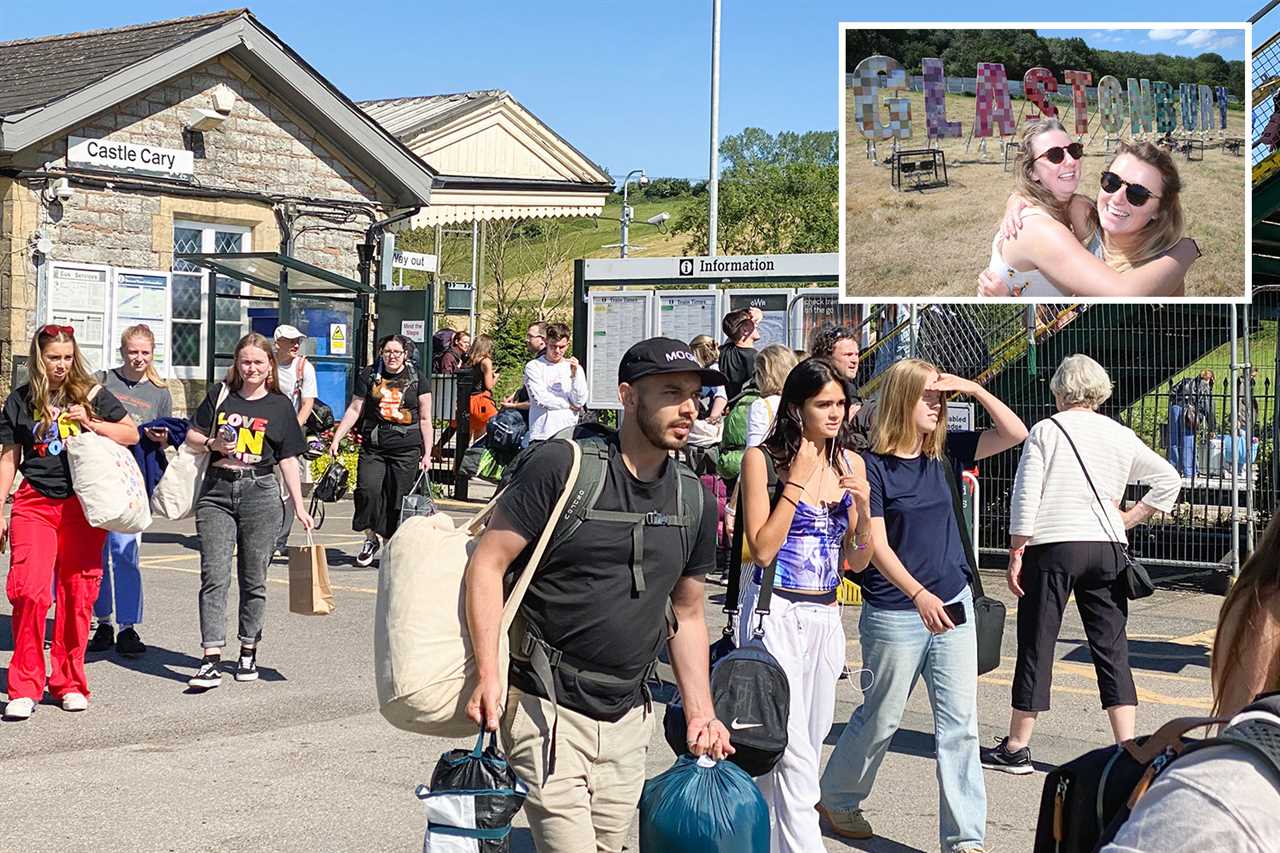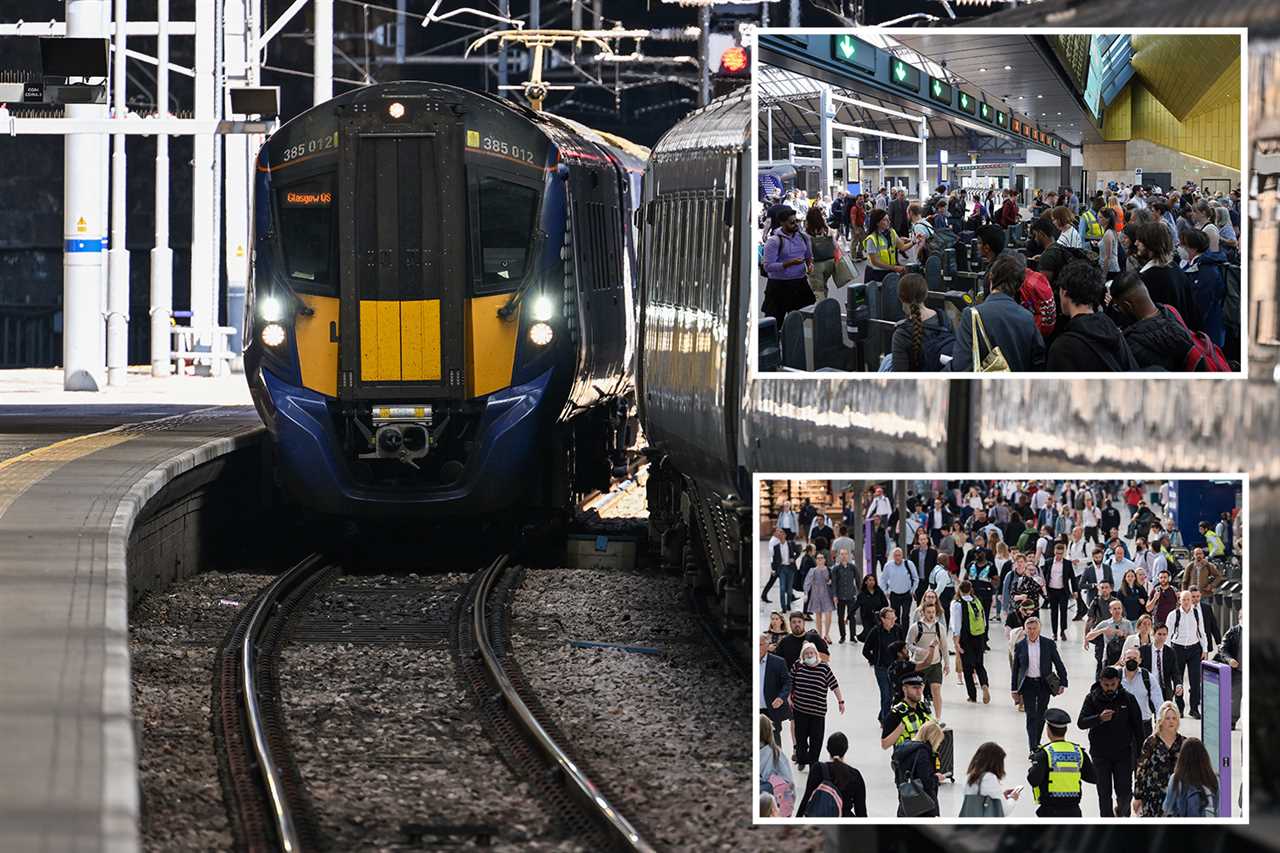BRITS are being urged to get home now as the last trains leave ahead of more strike action this weekend.
An alert has been issued to commuters who rely on trains amid fears that many are reluctant to abandon leisure trips planned for Saturday despite as another rail strike goes ahead.
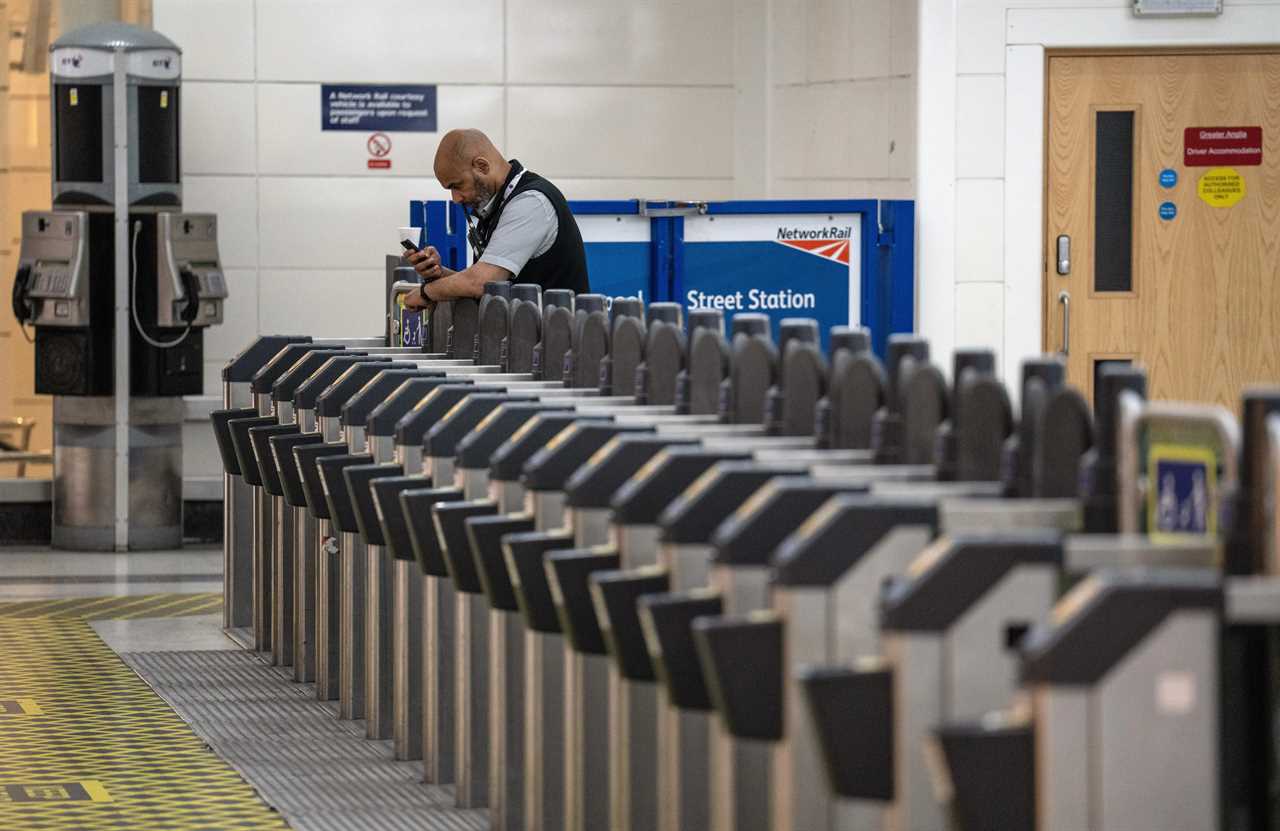
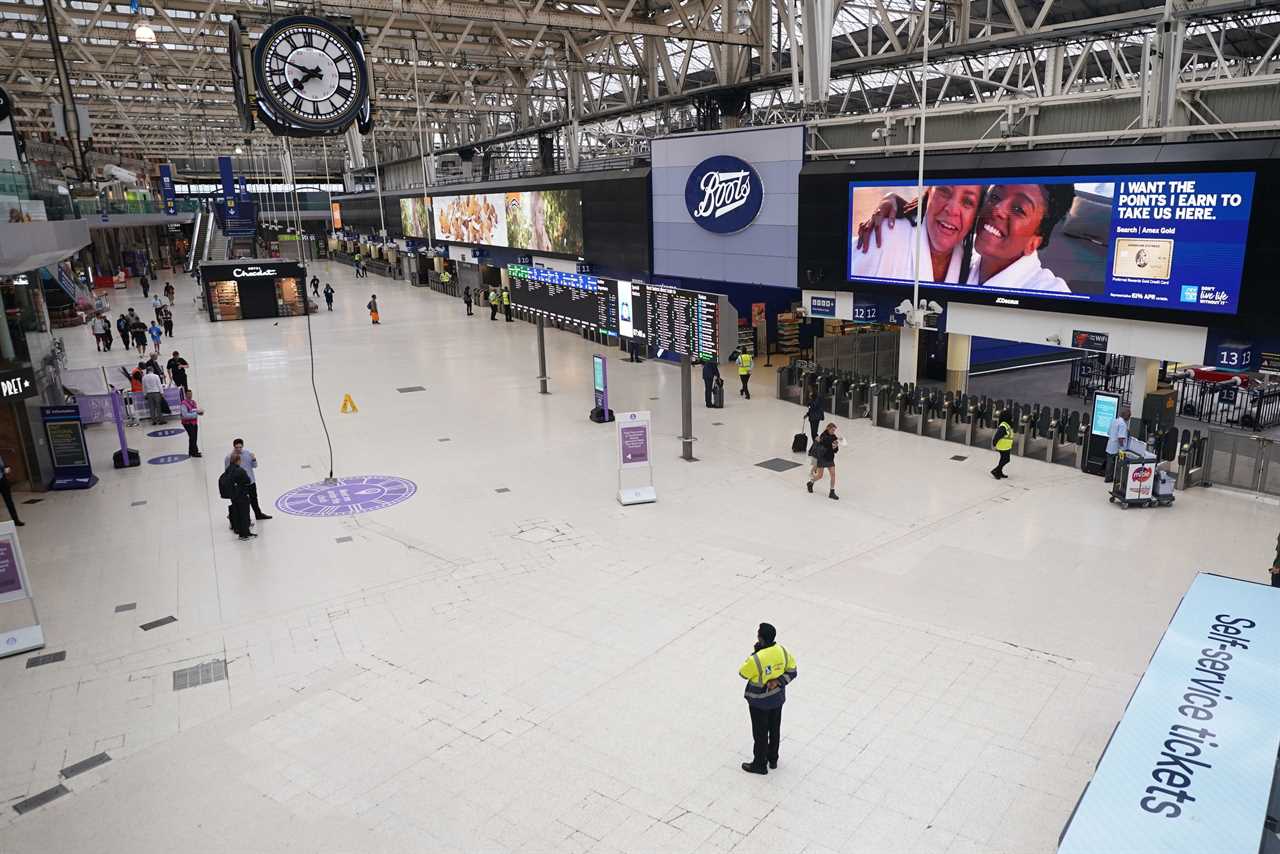
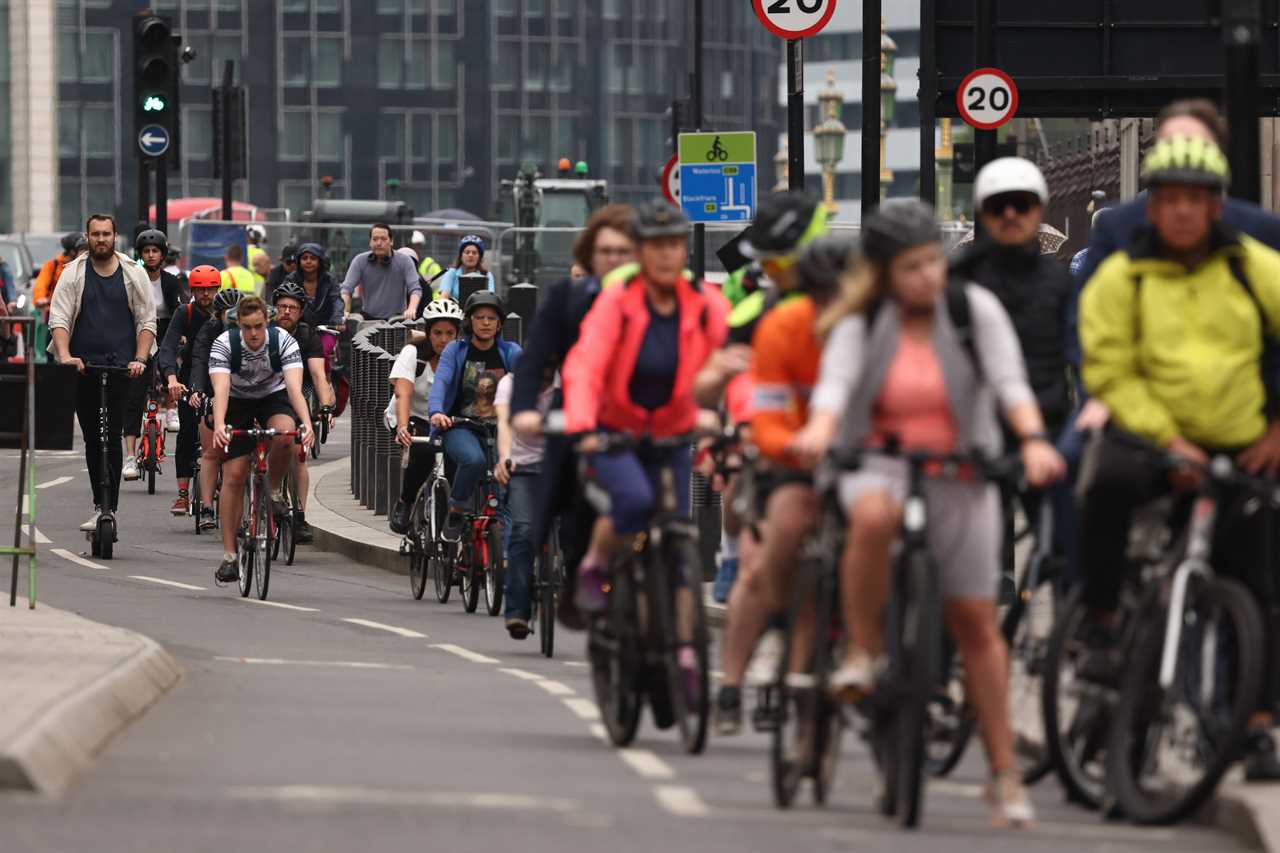
Only a fifth of services will run and half of lines will be closed as 40,000 members of the Rail, Maritime and Transport (RMT) union at Network Rail and 13 train operators walk out for the third day this week.
Many last trains will leave between 3pm and 5pm, with several major stations such as Birmingham New Street, Liverpool Lime Street and Manchester Piccadilly closing at 7pm.
Steve Montgomery, who chairs the Rail Delivery Group, which represents operators, said it was disappointed that the RMT leadership has decided to continue with tomorrow’s strike.
Operators are telling passengers to “only travel by train if necessary” and to check their journey in advance.
READ MORE ON TRAIN STRIKES
Montgomery said the action chosen by the union leadership severely inconvenience the millions of people who had plans over the weekend.
He said: “While we are doing our best to minimise disruption to passengers, our advice is to only travel if it is necessary, and if you are going to travel, please plan ahead.”
Many commuters successfully dodged the disruption caused by strikes on Tuesday and Thursday by working from home.
But people with long-standing plans to travel by train on Saturday – such as for a day trip or holiday, a visit to friends or relatives, or to attend an event – may be keen to press ahead with their trip despite the industrial action.
Passengers with pre-booked tickets for Saturday are able to travel on Friday, Sunday or Monday instead, or claim a refund.
There is “a nervousness” about what will happen on Saturday after stations were “relatively quiet” during the first two strike days,
Many seaside resorts will have no services on Saturday, including Bournemouth, Dorset; Blackpool, Lancashire; Margate, Kent; Llandudno, north Wales; and Skegness, Lincolnshire.
Cornwall will also have no trains.
Services across Britain will primarily be restricted to main lines, but even those will only be open between 7.30am and 6.30pm.
Disruption will continue into Sunday.
Only 60 per cent of trains were expected to run on Friday, mainly because of a delay to the start of services after signallers and control room staff due to work overnight shifts joined the strike.
No resolution to the bitter dispute over jobs, pay and conditions has been reached despite talks this week.
Network Rail chief executive Andrew Haines said: “Unfortunately, the RMT’s decision to carry out another day of needless and premature strike action means our passengers will suffer again on Saturday.
“A fraction of trains will run compared to a usual Saturday service, with trains starting later in the morning and finishing much earlier in the evening.
“I am really sorry to our passengers for the inevitable disruption to their journeys and their weekend.”
He added: “We remain at the table and ready for talks, day or night, and will do everything we can to avoid further disruption for our passengers.”
This week’s strikes are estimated to have cost the rail industry up to £150 million in lost revenue and the consequences of aborting planned upgrade work.
RMT general secretary Mick Lynch said its members are “standing up for all working people trying to get a pay rise and some job security”.
He continued: “In a modern economy, workers need to be properly rewarded for their work, enjoy good conditions and have the peace of mind that their job will not be taken away from them.
“(Transport Secretary) Grant Shapps needs to get in the room or get out of the way so we can negotiate with these companies who we have successfully struck dozens of deals with previously.
Read More on Trending In The News
“What we cannot accept is thousands of railway workers being thrown on the scrapheap after being praised as heroes during Covid.
“RMT will continue its industrial campaign until a negotiated settlement is reached.”

